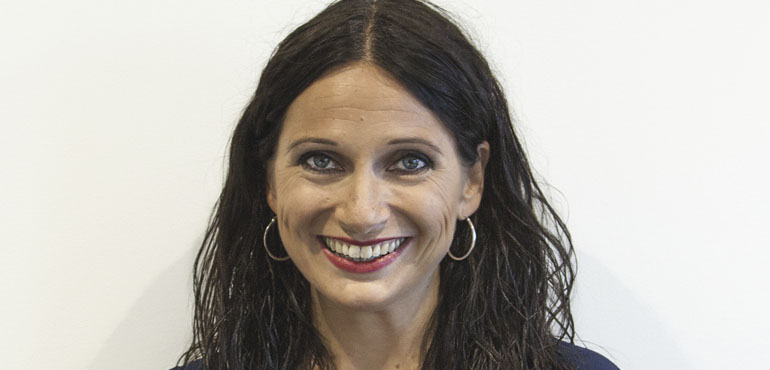Media agencies to become experts in people and technologies
Media agencies are experiencing change on a historical scale. ‘Sellers of advertising space’ are turning into consultation houses that operate across all sections of marketing. Heidi Björklöf, Managing Director at the media agency Carat, explains that new skill sets and fresh thinking are needed in marketing.
“We need to understand what makes consumers tick. We have to move our focus from mass segments to individuals.” These are the words of Heidi Björklöf, the managing director of one of Finland’s largest media agencies, Carat, and they accurately describe the change that media agencies and the entire media industry are going through at the moment.
Essentially, a media agency used to be the place where you went after an advertising agency had created a marketing campaign to discuss where to achieve the best visibility for the campaign.

Heidi Björklöf
The agencies’ role is completely different now. Björklöf has had a first row seat to see the changes taking place, having held managerial positions at Carat and its parent company Dentsu Aegis Network. She says that there are two major trends behind the changes.
Technology – and understanding motivation
Digitalisation has revolutionised the way we use media. “Consumers can decide how they use media, and they can block ads as they choose. Consequently, understanding consumer behaviour and people’s motives, in particular, has become extremely important,” says Björklöf. This is why, for example, Carat invests heavily in its own research operations.
Another great challenge is to understand the new technical solutions and platforms. The internet and mobile technologies have created new marketing opportunities. “Previously, the media agency’s job was done when the consumers had been reached. Now we consider issues such as what the consumer does after seeing an ad and whether they’ll buy something,” says Björklöf.
As a result of the extensive changes, media agencies are now involved in almost all phases of a marketing process, and their role is more that of a consultant.
“We are engaged in creating marketing strategies even before advertising agencies start building campaigns, while we also use analytics to measure the success of campaigns and efficiency of marketing systems. The last few account managers that I have recruited have all come from the consulting side of the business,” says Björklöf.

The media agency as an air traffic controller
The shift towards consultation services is also evident in the agencies’ conventional core task, buying visibility in media. This is carried out semi-automatically in systems such as Google or Facebook, but Björklöf says that it does not eliminate the fact that you need to have the right skills.
“The Facebook algorithm, for example, reflects a user’s previous areas of interest. It’s not, however, able to offer anything new that the user hasn’t indicated an interest in.”
Similarly, professional skills are required when applying analytics. “You can drown in data unless you understand what affects what, and how. Finding the cause and effect is our job.”
Björklöf says that media agencies now often take the role of ‘an air traffic controller’ in addition to their normal daily tasks. They help their customers to allocate their marketing budgets where they achieve the best return. “In order to do this, you have to understand complex systems.”
Media as a development partner
The huge changes in the industry have also had an impact on the way media agencies and media houses collaborate. “We now work much more closely with media houses,” says Björklöf.
As recently as ten years ago, media houses would publish their media cards and then prices for advertising space were discussed. The modern digital marketing solutions call for close collaboration between marketers and media.
Björklöf encourages those involved in developing new processes to take their cue from Sweden and other European countries where there is more investment in marketing.
“In Finland, companies tend to wait too long for ready-made solutions, while a culture of experimentation is dominant in our rival countries,” Björklöf explains. She urges companies to spend part of their marketing budget on experimenting with new solutions and then using analytics to see which of them work. “This business needs innovators who can visualise the future.”
Date: 17 May 2016
Theme: Trends
Text: Samuli Kotilainen
Photos: Carat, iStock